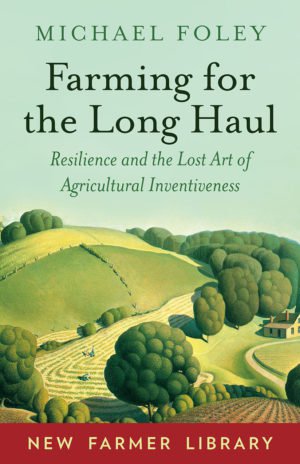Farming for the Long Haul: Resilience and the Lost Art of Agricultural Inventiveness, 2019, Chelsea Green Publishing.

Farming for the Long Haul is a book about farming today with an eye to our uncertain future. It is about building a viable small farm economy that can withstand the economic, political, and climatic shock waves that the twenty-first cientury portends.
This book looks cautiously forward toward the challenging prospects of the next several decades, trying to suggest ways to prepare a farming future that can survive the transition to a future very different from the present. And it will do so drawing on a still-deeper past, recalling examples from the vast history of agriculture and the endless array of agricultural adaptations that farmers have devised, gleaning lessons from more resilient agricultures, ones that withstood not just the vagaries of the modern capitalist market, but environmental and social shocks of the past that rival what lies ahead.
Succdessful farming societies — and there have been many of them throughout the history of agriculture — have never been driven by the profit motive, though profit has played a part in some societies…. Instead, they have been governed by principles of resilience — by the effort, to put it simply, to survive and to do so well under uncertain conditions. Those principles include: a dedication to their own subsistence, above all; sophisticated approaches to management of the natural resources on which farming depends; and dependence upon a vibrant local community as a first line of defense against calamity.
— from Chapter 1
Table of Contents
- Farming in the Ruins of the Twentieth Century
- A Short, Unhappy History of Business Advice for Farmers
- Subsistence First!
- Land for the Tiller
- Soil, Civilization, and Resilient Farmers Through the Centuries
- Resourceful Farmers
- Woodlands and Wastes
- It Takes a Village: Leisure, Community, and Resilience
- Getting a Living, Forging a Livelihood
- Farmer, Citizen, Survivor: Politics and Resilience